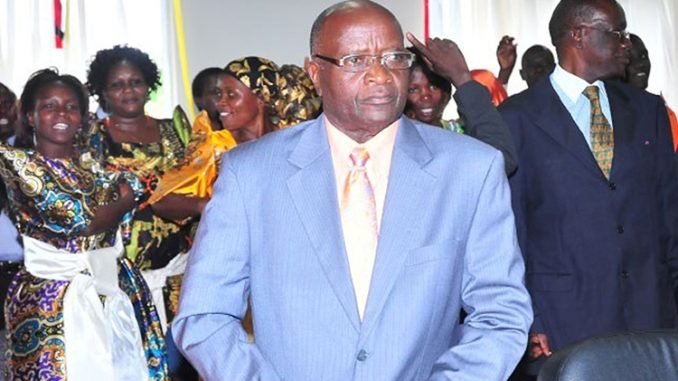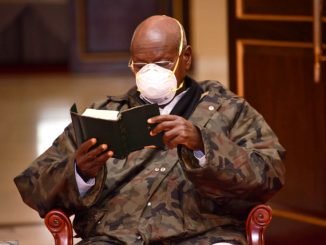
The Kampala Dispatch team combed through the party manifestos for the top six presidential candidates so that you do not have to. Here are the most critical aspects of the manifestos and the promises and pledges that set each candidate apart.
National Resistance Movement (NRM)
Candidate: Yoweri Kaguta Museveni, Incumbent President of Uganda.
Manifesto highlights.
Candidate Museveni’s manifesto spells out areas that are going to be given great attention in the next 5 years if he is elected back to office as roads, repairing and reconstruction in the railway sector and acceleration of the Prosperity for All programs.
Others include adding value to agricultural produce, industrialization, expansion in the education and health sectors as well as expanding the provision of clean and safe water to urban areas, trading centers and villages.
Developing the petroleum resource will be on the forefront if candidate Museveni is voted back to power.
He has also promised to work for the realization of the political federation of East Africa as well as ensuring environmental management and the restoration of sustainable development.
Inter-Party Cooperation (IPC)
Candidate: Kizza Besigye, President of the Forum for Democratic Change (FDC) party.
Manifesto highlights.
The IPC manifesto includes views from all the political parties that are party to the IPC. These are FDC,
Conservative Party (CP), Justice Forum Party (JEEMA) and the Social Democratic Party (SDP).
The major issues agreed upon by all parties in the IPC are the need to combat corruption, fight poverty and the recovery of public assets from corrupt government officials.
Others include the equitable distribution of resources, job creation and improvement in the education, agriculture and health sectors.
As a form of governance, the IPC promises to implement some form offederalism as the best way to govern Uganda. IPC also promises to trim the government in order to cut public expenditure as well as reconstruct
Northern Uganda which has been in a state of war for more than 20 years. Improvements in the environmental, transport and communication sectors are also high on IPC’s priorities.
People’s Progressive Party (PPP)
Candidate: Jaberi Bidandi Ssali, Party President.
Manifesto highlights.
PPP’s message is one of reviving a spirit whereby all Ugandans feel that they belong to their country and a hope for a better future for their country.
PPP intends to restore presidential term limits that were scrapped by the 7th Parliament and strengthen institutions of governance to implement their mandates in accordance with the laws of the country.
On agriculture, they intend to target small-scale farmers to improve their productivity by imparting skills through vocational training and access to affordable credit.
Programs to boost small and medium enterprises (SME’s) will also have priority under PPP. The privatization process under which different parastatals like Uganda Commercial Bank, Uganda Airlines, etc were sold will be reviewed by the PPP government.
Uganda Federal Alliance (UFA)
Candidate: Beti Olive Namisango Kamya, Party President.
Manifesto highlights.
UFA promises to establish a federal system of governance in Uganda within four years after assuming office. It also sets out to progressively increase funding for local governments from the current 15 percent per year to 50 percent in the first financial year in office, and 60 percent in the subsequent years.
Addressing the uneven distribution of wealth with the aim of developing regions that have for long been neglected will be UFA’s other goal.
They also intend to curtail government waste and the pillaging of national resources, set up a corruption commission using the law to prosecute those who will be found guilty, sell off the presidential jet, develop the tourism sector to become Uganda’s engine for economic growth and allocate 15 percent of the national budget to the agricultural sector.
The UFA government will also de-militarize politics by scrapping army representation in Parliament, institute an equitable public health insurance scheme for all Ugandans, provide good quality housing for residents in war-ravaged areas and prioritize the welfare needs of widows and orphans on top of providing free meals for school pupils.
Democratic Party (DP)
Candidate: Norbert Mao, Party President.
Manifesto highlights.
Mao’s DP government will put great emphasis on the improvement of services in the country such as education, irrespective of economic status and position, by improving teacher salaries and benefits with the goal of helping to bridge the widening gap between the rich and the poor in the country.
DP intends to tap into the global trends to use technology and the power of the Internet to create more employment opportunities for Ugandans. This will include investment in sciences including mechanical and computer engineering.
On agriculture, the DP government will start by allocating 10 percent of the budget to that sector. It will also curtail foreign retail traders to protect the vulnerable local traders. Mao also promises to revive the cooperative movement and explore block export opportunities.
More investments will be undertaken in the health sector and equal access to health care for all Ugandans will be implemented. DP believes that their government will fight corruption and poverty resulting in a more stable and peaceful country.
Uganda People’s Congress (UPC)
Candidate: Olara Otunnu, Party President.
Manifesto highlights.
Otunnu’s UPC promises to create two million jobs in four years in the reconstructing and modernizing of schools, hospitals and health care centres. The budget to agriculture will be increased from the current 12 percent to 15 percent to subsidize farm inputs and revive cooperatives. Spending on health will increase from the current eight percent to 15 percent of the national budget.
The 22 hospitals and the 13 regional referral hospitals built by the former UPC governments will be fully rehabilitated, and stocked with drugs. On top of that, three hospitals each with 100 beds each will be built in Kampala to relieve the pressure on Mulago Hospital.
On education, UPC will increase the budget allocation to that sector from the current 12 percent to 20 percent to provide education facilities for children with special needs and provide free lunch for all primary school pupils. The practice of automatic promotion in UPE schools will be abolished.
A total of 30,000 more secondary school classrooms will be constructed within 5 years. Government sponsorship at University level will be abolished and replaced with universal student loans for all who need them.



